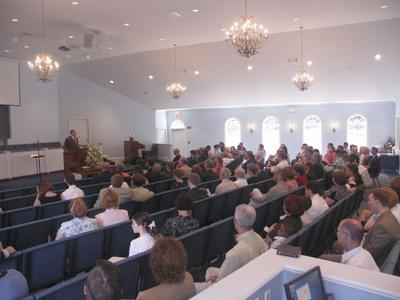Dealing with Sin in Our Children
The following is taken from a 1627 sermon by the English Puritan Arthur Hildersham:
- Motives Respecting Our Children
- Our love to our children binds us to it.
- Our duty to make amends for the wrong we have done to them in passing along a sin nature.
- Motives Respecting Ourselves
- It will be a matter of singular comfort unto us to see the corruption of their nature healed and saving grace wrought in them, especially if it is by our means.
- When grace is wrought in them (especially if it is by our means), they will be far more living and dutiful unto us than otherwise they would be.
- This will be a comfortable testimony unto us of the truth and soundness of the grace that is in us when we are careful to breed grace in all who belong to us, and especially our own children.
- Motives Respecting our Duty to God
- The trust that the Lord has put us in and the charge that He has given us concerning our children.
- The hope of God’s church and the propagation of religion unto prosperity depends principally upon parents taking care to make their children religious.
- The Means
- If we desire to save our children and heal their natures, we must be careful to maintain that authority and preeminence that God has give us over them.
- If parents do not themselves honor and fear God then their children cannot honor or fear them.
- Parents must not neglect to keep their children in awe when they are young.
- The second means all parents must use to destroy corruption of nature in their children, and to breed grace in them, is instruction.
- Teach them soon to know God, to know what is good and what is evil.
- You must quickly acquaint them with the practice of religion, like reading the Word, prayer, and giving thanks at their mealtimes, with singing of psalms.
- You must bring them with you to the church to the public worship of God quickly, even while they are very young, as soon as they can come and be there without disturbing the congregation, so that they may be acquainted with God’s worship and ordinances soon.
- You who are parents must examine your children as to hw they profit by the means of grace. You must test them as to how they understand what they hear. Repeat it and make it plain to them, and, in repeating it, apply it also.
- The third means is a good example – cause it to appear to them in your whole conversation that you unfeignedly fear God and love good things.
- The fourth means parents must use for the saving of their children’s souls is to take head who they dispose of them when they leave the home. Parents must take heed what schoolmasters and tutors they send them to, what service and what marriages they place them in.
- The fifth and last means, without which all the former are to no purpose, is prayer. Parents must be earnest with God in prayer for their children.











